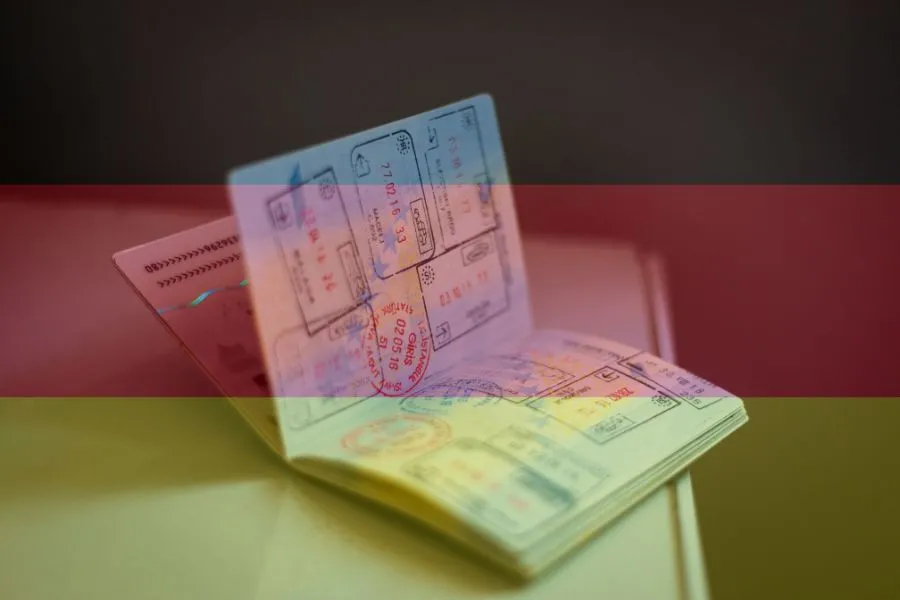If you’re planning to move to Germany for work in 2025, one of the first things to factor into your budget is the visa cost. While Germany is known for its streamlined and structured immigration system, it still comes with fees, and knowing what you’ll pay can help you plan better. Whether you’re applying from abroad or already in the EU, here’s a clear breakdown of what the German work visa costs, along with related expenses you should be prepared for.
Key Takeaways
What Is the German Work Visa?
The German work visa, officially known as the Employment Visa (or National D visa – Type D), is a long-stay visa that allows foreign nationals to live and work in Germany. It’s typically granted for skilled professionals, IT workers, engineers, health professionals, and Blue Card holders.
Once you arrive in Germany, you must convert this visa into a residence permit tied to your employment. This two-step process means you’ll be dealing with both your local German embassy (for the visa) and the Foreigners’ Office (Ausländerbehörde) after arrival.
How Much Are the Germany Work Visa Fees in 2025?
As of 2025, the official visa application fee for a German employment visa remains:
- €75 for adults (standard fee)
- €37.50 for minors, though this is rarely applicable for work visa cases

This is a non-refundable fee paid at the time of your appointment at the German consulate or visa application center in your country. Payment is typically accepted in the local currency equivalent, and some centers may charge a small service or courier fee (around €10–€30 extra, depending on location).
Do You Need to Pay More After Arrival in Germany?
Yes, once you land in Germany, you’ll need to convert your visa into a residence permit, which also comes with its fee. In 2025, the fee for the residence permit is:
- €100 for a stay of up to one year
- €110 for a stay of more than one year
So, the total visa-related cost from start to finish can reach around €175 to €185.
Also Read: How to Get Permanent Residency in Germany Without a Lawyer in 2025?
Keep in mind: if you’re applying for the EU Blue Card, the fee might vary slightly, and the initial approval can cost a bit more (up to €140, depending on processing time and city-specific charges).
What Other Costs Should You Budget For?
The visa fees are just one part of the equation. To complete your German work visa process successfully, you’ll need to cover a few other mandatory expenses:
- Health Insurance
Proof of health insurance is mandatory — even at the visa application stage. You can either buy a travel insurance policy (for the first few months) or get a German public/private insurance plan ahead of time. Monthly costs vary, but expect to pay around €80–€120/month for temporary coverage. - Document Translation and Notarization
Any documents not in German or English (like degrees or experience letters) may need an official translation. This can cost €20–€50 per page, depending on the country and translator. - Apostille or Attestation Fees
Some professions require documents to be apostilled or notarized, especially for recognition under German law. Fees vary by country but generally range from €10 to €100 per document. - Accommodation Registration and City Fees
After arriving in Germany, you’ll need to register your residence (Anmeldung). While the registration itself is usually free, certain cities may charge a nominal fee (€10–€20).
Is the Visa Fee Refundable If You’re Rejected?
Unfortunately, no. The visa fee is non-refundable, even if your application is denied. However, you can reapply as soon as you’ve corrected the issues that led to the rejection, whether that’s incomplete paperwork, lack of proof of funds, or missing qualifications.
That’s why it’s so important to have all documents in perfect order, especially your work contract, proof of qualifications, and German-recognized insurance.
Can Your Employer Pay the Visa Fees?
In some cases, yes — especially for large German or multinational companies, employers may offer to reimburse visa fees, relocation costs, or cover your legal paperwork. But this is not a requirement under German immigration law. If you’re being recruited from abroad, it’s worth asking HR if there’s any financial support package included.
This is more common in high-demand sectors like IT, engineering, and healthcare.
Are There Any Additional Costs for Family Members?
If you’re bringing a spouse or children on a family reunion visa, each of them must apply separately. In 2025, the standard visa fee remains:
- €75 per adult
- €37.50 per child under 18
Also Read: Which Universities in Germany Let You Study Without IELTS in 2025?
You’ll also need to show adequate income, housing, and insurance to support your dependents.
Final Thoughts
In 2025, the German work visa fees are straightforward and relatively affordable compared to many other countries. With the base application fee at €75 and a residence permit fee of €100–110, the process is financially manageable, especially if you plan for additional costs like insurance and document verification.
The key is preparation. As long as you meet all the eligibility requirements and have your paperwork in order, the German work visa remains one of the most streamlined and transparent routes for skilled professionals seeking international employment.
Reference: https://www.germany-visa.org/work-employment-visa/





